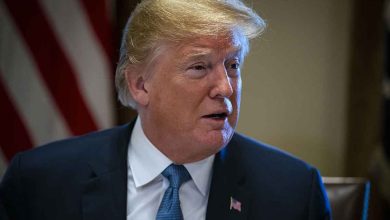UK’s Starmer Signals End of Globalization Era, Vows Protection for British Industry
Facing new U.S. tariffs, Prime Minister Keir Starmer pledges industrial intervention to shield UK companies and insists trade deals must protect British workers.

Watan-UK Prime Minister Keir Starmer expressed on Sunday his government’s readiness to intervene more directly in the economy to protect local industry from U.S. tariffs, declaring that the era of globalization as previously known is “over.”
In an opinion piece published in the conservative Telegraph newspaper, the Labour Party leader wrote:“The world as we knew it is over (…) The new world is governed less by fixed rules and more by agreements and alliances.”
This week, U.S. President Donald Trump imposed a 10% tariff on British exports to the United States—a lower rate than the 20% tariff applied to goods from the European Union.
Starmer added:“We are prepared to use industrial policy to shield British companies from the storm,” while acknowledging that in a country considered the birthplace of economic liberalism and free trade, “some may feel uncomfortable with this idea.”
He continued:“But we simply cannot cling to old sentiments at a time when the world is changing so rapidly,” noting that he plans to announce measures next week to “boost the competitiveness” of the British economy.

Starmer Holds Firm on Tariffs, Vows to Protect UK Standards in Trade Talks
At this stage, London has not announced any retaliatory actions in response to the U.S. tariffs. The UK government has been negotiating for weeks with the Trump administration on a potential economic agreement that could eliminate all or part of the tariffs.
Starmer emphasized on Sunday that:“The immediate priority is to remain calm and work hard to reach the best possible deal,” stressing that “all options remain on the table” as the Labour government has launched consultations with the business community over a possible response.
The Prime Minister stated:“I will not sign any deal [with the United States] unless it benefits British businesses and protects workers.”
Meanwhile, Darren Jones, Secretary-General of the UK Treasury, said on Sunday that London will not “lower food standards” in any future agreement. His remarks came amid growing concerns among British farmers over potential competition from U.S. producers. He made the comments during an interview with Sky News.
In a phone call on Saturday, Starmer and French President Emmanuel Macron agreed that a trade war “serves no one’s interests,” but also stressed that “nothing should be ruled out.”




